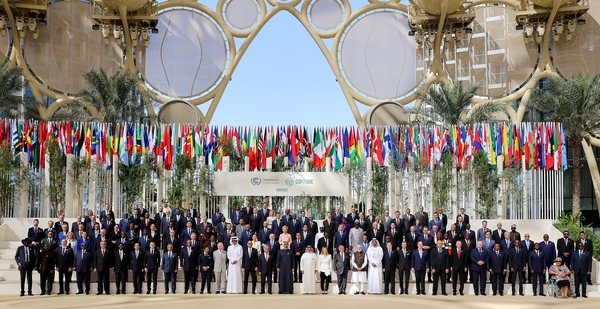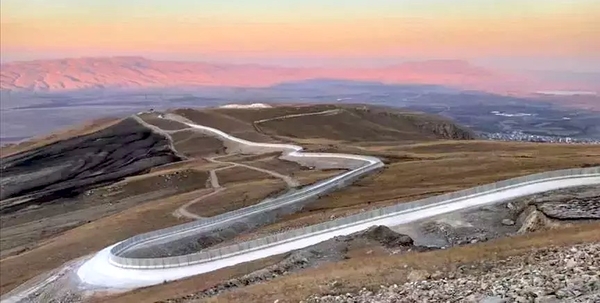El Moudjahid: An estimated 286 million people worldwide currently live outside their country of birth, the highest level ever recorded. Yet this figure is expected to rise due to many factors, including: population growth, increasing connectivity and trade, rising income inequality, variable demographic rates, and climate change.[1] Can migration mitigate these problems?
Daniel Pipes: Migration in itself is a positive phenomenon. It opens the way to escape conflict zones and dictatorships, to fulfill career ambitions, to improve retirement circumstances, and much else. But migration needs to be controlled to keep out undesirable elements, whether criminal or ideological, and also to retain the culture of the destination. Put differently, most people accept legal migration but reject illegal migration.
EM: The 2023 United Nations Climate Change Conference (COP28) highlighted the role of environmental problems on migration. Does this mean it has a global dimension?
 The 2023 United Nations Climate Change Conference (COP28) in Dubai. |
DP: Unquestionably, abuse of the environment is prompting large-scale and even catastrophic migration. Iran offers an extreme case. In 2015, Issa Kalantari, an adviser to Iran's vice president, warned that Iran, by continuing to exploit nearly 100 percent of its surface water, will force 70 percent of the population, or 50 million persons, "to leave the country." Coastal cities of West Africa are slipping into the ocean. And so forth. Such numbers threaten not just crises of illegal migration but famines and wars.
EM: Well-managed mobility in theory can help with sustainable development, prosperity, and progress. But is this practically possible?
DP: It will be difficult, but I believe it can be achieved on condition of two main changes. First, destination countries, mostly Western ones, must take control of their borders. They must not just talk of this, but find the will and deploy the resources actually do so. Second, migrants must stop focusing so specifically on the West and instead find closer destinations, those culturally more related to themselves, to go to.
EM: What are the best ways to deal with those people displaced by conflict, local violence, natural disasters, and other causes?
DP: The refugee status needs to be clearly distinguished from other motives for migration. This happens only in the breach at present.
EM: What is the impact of growing anti-migrant attitudes in many countries, both in the West and beyond (such as Türkiye, Iran, and India)?
 A stretch of Türkiye's 81-kilometer (50-mile) wall excluding illegal migrant from Iran, |
DP: The growing number of illegal migrants has become a primary driver of politics in a number of Western countries, including Hungary, Sweden, Denmark, Germany, the Netherlands, France, and the United States. It has also become a major issue in the three non-Western countries you cite. I expect that the issue will continue to grow in importance until destination countries manage to take control of the influx. I also expect that methods will grow in harshness, both as an emotional release and as an example for others who might contemplate emigrating without permission. This promises to be one of the most emotional and complex issues of the decades ahead.
[1] The French version ascribes the previous sentence to Daniel Pipes but it was expressed by Tahar Kaidi.